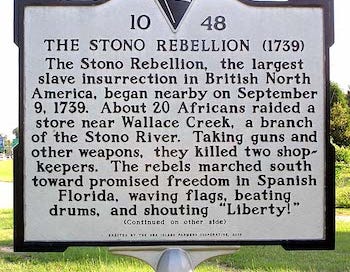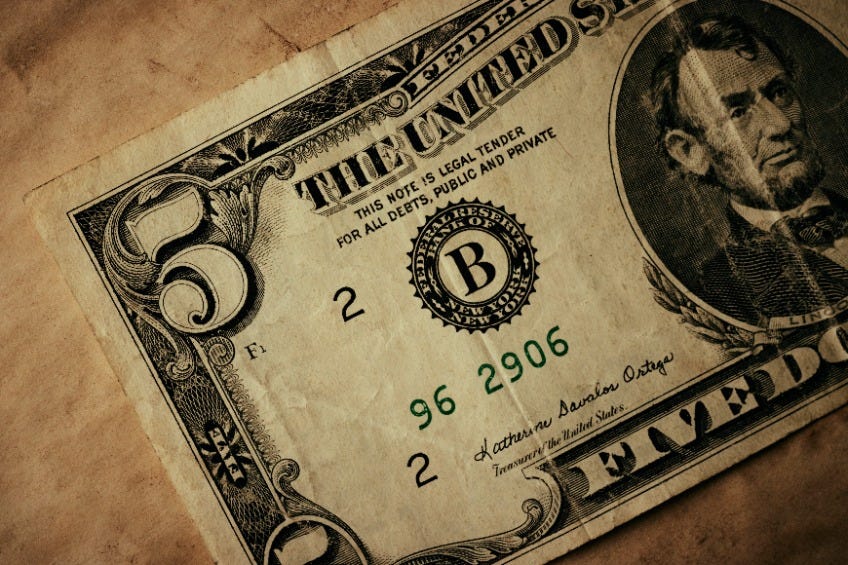Today In Black History: The Stono Rebellion
The largest slave uprising in the British Colonies
Issue #881 Today In Black History, Wednesday, July 2, 2025
The Stono Rebellion, also known as Cato's Rebellion, took place on September 9, 1739, near the Stono River in South Carolina. It was the largest slave uprising in the British mainland colonies, predating the American Revolution and the Declaration of Independence by nearly forty years. The rebellion was led by enslaved Africans who had grown increasingly desperate under the harsh conditions of bondage in the colonial South.
The early 18th century in South Carolina was marked by a brutal system of slavery, where enslaved Africans were subjected to inhumane treatment and had little recourse or hope for freedom. The proximity of Spanish Florida—a refuge owing to Spain's promise of freedom to escaped slaves—set the stage for the rebellion.
On that day in 1739, a group of around 20 enslaved Africans gathered near the Stono River, led by another enslaved man named Jemmy. The group raided a firearms shop, securing weapons and marching southward with cries of "Liberty!" as they moved from plantation to plantation, killing enslavers and recruiting more followers.
The rebels planned to reach Spanish Florida, where they hoped to find freedom and refuge. However, the rebellion was short-lived; by the end of the day, the group encountered a well-armed and organized colonial militia. The confrontation resulted in the deaths of many of the rebels, while others were captured and executed or sold into harsher slavery.
The Stono Rebellion prompted the South Carolina legislature to enact the Negro Act of 1740, which restricted the movement, assembly, and education of enslaved individuals.
The Stono Rebellion underscored the lengths to which enslaved Africans would go for their freedom and autonomy.
Today In Black History
In 1777, Vermont became the first British American colony to abolish slavery.
In 1822, Denmark Vesey, the planner of a slave rebellion in Charleston, SC, was hanged.
In 1872, Black inventor Elijah McCoy patented a lubricator cup for steam engines used on trains. His model was so superior to previous attempts that the train owners would accept nothing less than the “real McCoy.”
In 1943, Lt. Charles Hall (99th Pursuit Squadron) of Brazil, IN, became the first Black pilot to shoot down a Nazi plane.
In 1964, Congress passed the 1964 Civil Rights Act and established the Equal Employment Opportunity Commission.
If you like us, REALLY like us, please click the little heart “Like” button at the top of this post!
Buttons:
Heart: Like Bubble: Comment Arrow Up: Share Arrows Circle: Restack
If you like us, REALLY like us, please click the “Like” button at the top of this post!
Your “Likes” mean a LOT to us! We appreciate your support!
Buy Pam a cup of Colombian Coffee!
Engage with us and our posts on Substack Notes, where we publish new content almost daily.
Our June 2025 subscriber goals are 400 new free subscribers and 80 new paid subscribers! You can help us reach our goal!
We Are Speaking is a reader-supported publication. To receive new posts and support our work, consider becoming a free or paid subscriber.
Follow Pam on Bluesky, the best “X” alternative.
Follow Keith on Bluesky, the best “X alternative.
Independent Authors and Creative Professionals: Check out my valuable books and courses on Branding and Marketing just for you via Pam Speaks 2 You.








